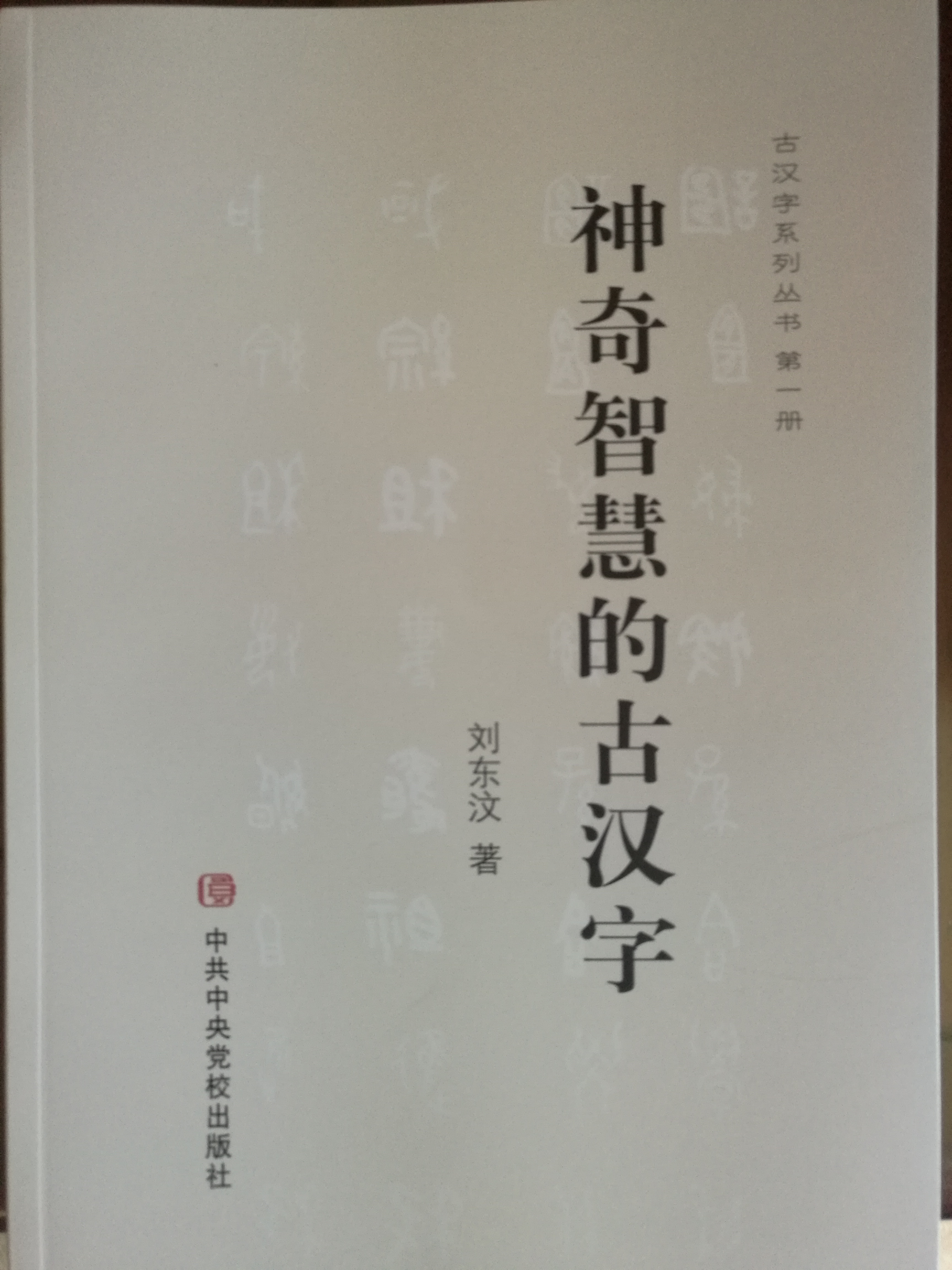
我在英语翻译上,基本上是个门外汉。但是,我看了我写作的文章,被随机翻译成的英文稿以后,也有一点想法奉献给英语翻译家们参考。
I am basically a layman in English translation. However, after I read my articles and were randomly translated into English, I had a few ideas for English translators.
日字本义是:红日,英译sun;只有在表达年月日时间里,日字翻译为day。
Japanese characters mean: red Sun, English translation of sun; only in the expression of the year and day time, Japanese characters translated as day.
首先讲月字。首先,月是月亮的象形字;它主要用于月亮一词上,以及在时间计算上,如年月日等。月亮本来是与晚上、夜晚相联系的。但是,在汉字里,夜、夜晚却更多时候是以夕字来表征的;夕字也是月亮不圆的象形字。夕字本义:有缺口的月亮,又是夜晚的含义。
First of all, the word of the moon. First, the moon is the pictogram of the moon; it is mainly used in the term moon, and in time calculation, such as year, month, day, etc. The moon was originally associated with night and night. But in Chinese characters, the night is more often represented by the words of the night, which are also pictographs of the moon. The original meaning of the word night: there is a gap in the moon, but also the meaning of the night.
到晚上,一般每夜都有月亮出现,没有月亮的夜晚每月只有一个晚上,就是每月的晦日的晚上;只有这一天晚上是没有月亮的。
In the evening, there is usually a moon every night, there is only one night without the moon each month, that is, the night of the dark day; only this night is without the moon.
在每个月里,月亮从娥眉月升起,到每月十五、十六日月亮成为满满的圆月;而后月亮亏缺,直到月底月亮彻底消失。这就是农历里的一个月。英译里夜晚,月亮 night, moon;At night, the moon night, moon.
During each month, the moon rises from the frown to the 15th and 16th of each month when the moon becomes full of full moons; then the moon is missing until the end of the month when the moon disappears completely. This is a month in the lunar calendar. Night, moon night, moon;At night, the moon night, moon.
晦日(huiri),指的是农历的每月三十日,这个晚上没有月亮出现,有种说法,是月亮仙子去幽会自己的丈夫去了。
(huiri), refers to the 30 th day of the lunar calendar, no moon this evening, there is a saying that the moon fairy went to meet her husband.
其次,讲日(sun)字。在汉字中,日字首先是自然界里红日的表征。日字的字义就是红日,太阳一词用于代表红日那是后来才出现的。
Secondly, speaking Japanese (sun) word. In Chinese characters, Japanese characters are the first representation of the red sun in nature. The word "sun" means "red sun". The word "sun" is used to denote the red sun, which only appeared later.
在每天24小时里,平均就会有12小时是白天,12小时黑夜;而白天,也就是红日光焰照耀着大地的时候,这就是白日,或者叫白昼。正因为夜晚过去后就是白天,因此,又用日字来表示一天(一日),一日包含白昼和黑夜,有24小时。在各个季节里白天和黑夜的时间长短是不一样的;一天里,白天长了,黑夜就短了,但每天总的时长还是24小时。
In 24 hours a day, on average, there are 12 hours of day, 12 hours of night; and the day, when the red sun shines on the earth, is the day, or day. As the night passes by, the day is represented by a day (day). A day consists of day and night, and there are 24 hours. The length of day and night varies from season to season; the day is longer and the night is shorter, but the total duration of the day is 24 hours.
在汉字里,日字作为部首出现,主要字义指的是红日。把汉字部首里的日字部首英译成为Japanese是开了个历史的国际玩笑。
In Chinese characters, Japanese characters appear as radicals, the main meaning is the red sun. It is a historical international joke to translate Japanese characters into Japanese.
因为,在汉字字义基本完善时,日本国名还未出现!!
Because, when the Chinese character meaning is basically perfect, the Japanese country name has not appeared yet!
汉字字义在公元初年,即此前2000年就已经基本完善,而日本国名的出现不过1000年。把这些部首里的日字翻译为英语的日本,这是历史的可笑误会。
The meaning of Chinese characters was basically perfect in the early year of AD, that is, 2000, but the Japanese national name appeared only 1000 years ago. It is a ridiculous misunderstanding of history to translate the Japanese characters of these radicals into English.
在汉字里,日字作为部首出现时,一般都是作为红日的身份出现的。
In Chinese characters, when Japanese characters appear as radicals, they generally appear as red sun.
例如,明字里,包含日+月
For example, the word "Ming" contains the sun and the moon
间字:门+日Intercharacter: gate day
指的是门里进来了红日(实际上指的是红日的光芒,那种光芒也代表着红日的光临,因此,用日字来代表它。
It refers to the red sun coming in the door (in fact, the red sun's light, which also represents the presence of the red sun), so use Japanese characters to represent it.
请注意,在汉字里,日本国家的出现那是近千年的事情;以往把日本国家称呼为倭奴国(小矮子的国家)。因此,汉字里的日字,作为部首出现,与日本国家一般是没有关系的。
Please note that the emergence of the Japanese state in Chinese characters was a millennia; it was formerly called the Japanese slave state. Therefore, Japanese characters in Chinese characters, as a radical, and the Japanese state is generally irrelevant.
旭字:九+日
Xu Zi: nine days
这里的九字不是指的数字九,而是指的早上红日升起,是因为6条龙拉着的车子,飞翔在天空。这里的九是龙车飞跑时那种逶迤状。
The nine words here are not the number nine, but the red sun rising in the morning because of the six dragon-pulled cars flying in the sky. The nine here are the meandering shape of the dragon-cart running.
早字:日+十
Morning word: ten days
日(sun)+十;这里的十是作为地平线的一上面有根杆子那么高,早字是红日升起还在一根树干那么高的时候,是早上。
The ten is as high as a pole above the horizon, and the morning is when the red sun rises as high as a trunk.
東(东)字:日+木
East (East) word: Japanese Wood
東字是早上红日刚刚升起在树木中间,意味着东方。
East word is the morning red sun just rising in the middle of the trees, meaning the east.
杲字:日+木 红日升起在树梢The sun rose from the top of the tree
杲(gao)字是学习的榜样的意思。红日早上升起在树梢的时候,正是红日蒸蒸日上,光芒万丈,前途无限辉煌的时候。红日击败黑暗,把光明带给整个宇宙,这种勇于奋斗,勇于胜利的精神,当然很值得学习的。
Gao is an example of learning. The red sun rose on the treetops in the morning, when the red sun was flourishing, bright and bright. The red sun defeats darkness and brings light to the universe. This spirit of fighting and winning is certainly worth learning.
杳字:木+日 红日落在树木根下The wood sun and the red sun set under the roots of the trees
红日落在树木底下,当然是看不见的,因此,汉语里有杳然,杳无音信等词句。
The red sun setting under the trees was, of course, invisible, so there were no words in Chinese.
昊字:日+天 Haozi: sun and sky
昊字是指红日已经升至天空,也叫着如日中天,当然是光芒万丈,给宇宙带来无限温暖。这里的天,指的是天空
Haozi refers to the red sun has risen to the sky, also called the sky, of course, is brilliant, bring infinite warmth to the universe. The sky here, it means the sky.
炅字:日+火 Jiong: sun fire
有首诗歌:赤日炎炎似火烧,野田禾苗半枯燥;农夫心内如汤煮,公子王孙把扇摇。炅字指的就是:赤日炎炎似火烧。不过,人们取名炅字时,是有人命中(中国算命学中语言)五行缺火,取名炅字有补救的意思。
There is a poem: the sun is burning like fire, Noda grass is half dry; the farmer's heart is boiling like soup, and the son Wang Sun shakes the fan. The word "Jiong" means: the sun is burning like fire. However, when people name Jiong, it is someone who hits the fire of five elements.
昏:氏+日 Fainting: days and so on
这个昏字,氏字本义是指的男士,上边一撇是肚皮,下边两条钩子是指的两条腿,中间一横是撒尿的样子。这里转意为人的两条腿。昏字,指的是傍晚时分,红日落在人的两条腿下面,马上红日就要落山,晚上就要来临了。因此,昏字与昏暗连用。
The fainting word refers to a man with a belly at the top, two legs at the bottom and a urination across the middle. It turns to be two legs. Fainting, refers to the evening, the red sun set on both legs, immediately red sun will set, the evening is coming. Therefore, the fainting word is used with the dim.

